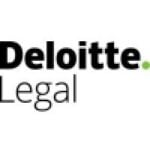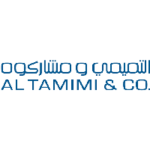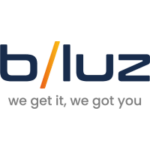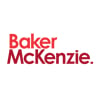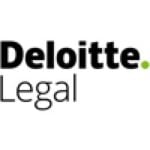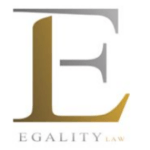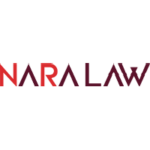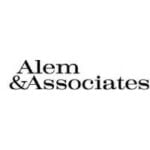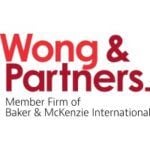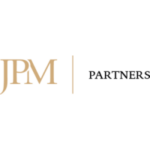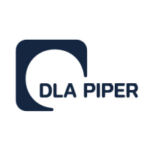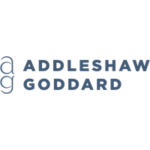-
Is the system of law in your jurisdiction based on civil law, common law or something else?
The legal system in Nigeria is based on a combination of common law, customary law, and Islamic law (Sharia law). The common law system, inherited through British colonial rule, forms the foundation of the legal framework, particularly in commercial, civil, and criminal matters. Customary law is applied in matters related to local customs and traditions, and Islamic law is practised primarily in the northern states among Muslim communities for personal and family law issues.
-
What are the different types of vehicle / legal forms through which people carry on business in your jurisdiction?
There are a number of corporate structures that are recognised by the Companies and Allied Matters Act, 2020 (as amended) (“CAMA”), such as:
- Private company limited by shares: This is the most common form of legal entity in Nigeria. A private company can be formed by a minimum of 1 (one) member and a maximum of 50 (fifty) members. The liability of its members is limited by the memorandum of association to the amount, if any, unpaid on the shares respectively held by them.
- Public limited liability company: This is one other than a private company limited by shares. The minimum number of shareholders is 2 (two), but there is no maximum limit on the number of shareholders it can have.
- Company limited by guarantee: This is a not-for-profit company established for the promotion of commerce, art, science, religion, sport, culture, education, research, charity or other similar objects. It could be a private company limited by guarantee or a public company limited by guarantee. The liability of its members is limited to such an amount as the members may respectively undertake to contribute to the assets of the company in the event of its being wound up.
- Unlimited liability company: This is a company where there is no limit to the liability of its members. It could be a private unlimited liability company or a public unlimited liability company.
- Incorporated Trustees: This is a corporate body where 2 (two) or more trustees are appointed by any community of persons bound together by custom, religion, kinship, or nationality. This option is usually recommended for not-for-profit organisations.
- Limited Liability Partnerships (“LLPs”): These are business entities formed and incorporated under the CAMA and recognised as separate legal entities from their partners. LLPs enjoy corporate legal personality status with perpetual succession, and the liability of the partners is limited to their contributions to the LLP. LLPs may be formed by 2 (two) or more partners, who may be individual or corporate partners. LLPs are required to have a minimum of 2 (two) designated partners, who must be individuals and at least 1 (one) of whom must be a resident in Nigeria. LLPs that have only corporate partners or a combination of corporate and individual partners may appoint nominees of 1 (one) or more of its corporate partners or its individual partners as its designated partners. The rights and interests of a partner are transferable, and consequently, a change in the partnership will not affect the existence, rights and liabilities of the LLP.
- Limited Partnerships (“LPs”): These are partnerships that do not have a separate legal personality. They have a different limited liability status from LLPs. They are, however, allowed to have a general partner who is liable for all the debts and obligations of the partnership, while the limited partners enjoy limited liability. The maximum number of partners for an LP is 20 (twenty), comprising at least 1 (one) general partner and 1 (one) limited partner. The limited partner does not have the power to bind the firm or participate in the management of the firm, otherwise, he would be liable for all the debts and obligations of the firm incurred for the relevant period.
-
Can non-domestic entities carry on business directly in your jurisdiction, i.e., without having to incorporate or register an entity?
No, section 78 of the CAMA requires every foreign company which intends to carry on business in Nigeria to be incorporated as a separate entity in Nigeria for that purpose. Until so incorporated, the foreign company cannot carry on business in Nigeria, exercise any of the powers of a registered company or have a place of business or an address for the service of documents or processes in Nigeria for any purpose other than the receipt of notices and other documents, as matters preliminary to incorporation under CAMA.
The above requirement does not apply to foreign companies that have been:
- granted an exemption under previous Nigerian Companies Acts;
- exempted under any treaty to which Nigeria is a party; or
- granted an exemption under any Act of the National Assembly.
Foreign companies are permitted to apply to the Minister of Industry, Trade and Investment for an exemption from the requirement in Section 78 where such company falls within any of the following categories:
- foreign companies other than those specified in paragraph (d) below, invited to Nigeria by or with the approval of the Federal Government to execute any specified individual project;
- foreign companies which are in Nigeria for the execution of specific individual loan projects on behalf of a donor country or international organisation;
- foreign government-owned companies engaged solely in export promotion activities; and
- engineering consultants and technical experts engaged in any individual specialist project under contract with any of the governments in the Federation or any of their agencies or with any other body or person where such contract has been approved by the Federal Government.
-
Are there are any capital requirements to consider when establishing different entity types?
The minimum share capital requirement for a private company limited by shares is N100,000 (one hundred thousand Naira), while public limited liability companies are required to have a minimum share capital of N2,000,000 (two million Naira).
The Nigerian Investment Promotion Commission (“NIPC”) requires companies with foreign participation to have a minimum share capital of N10,000,000 (ten million Naira) to register with the NIPC and obtain a Certificate of Registration of Company with Foreign Participation.
The Federal Ministry of Interior issued a Revised Handbook on Expatriate Quota Administration in 2022, requiring companies to have a paid-up share capital of N100,000,000 (one hundred million Naira) for business permits and expatriate quotas. Although the effective date is unclear, the Corporate Affairs Commission (CAC) announced on 5th December 2023 that it would start enforcing this requirement, mandating new companies with foreign participation to have N100,000,000 (one hundred million Naira) paid-up share capital at incorporation. Existing companies were given 6 (six) months to comply. However, this notice was retracted on 8th December 2023. Despite the retraction, the CAC has begun enforcing the requirement by rejecting filings from companies with foreign shareholders that have not increased their share capital to N100,000,000 (one hundred million Naira).
-
How are the different types of vehicle established in your jurisdiction? And which is the most common entity / branch for investors to utilise?
Each vehicle outlined in Q&A 1 above is required to be incorporated using the CAC’s Company Registration Portal.
The most common entity utilised by investors is the private company limited by shares.
-
How is the entity operated and managed, i.e., directors, officers or others? And how do they make decisions?
In Nigeria, companies are operated and managed in accordance with the CAMA. Business decisions are made by the Board of Directors of the Company. The Board can determine how regularly it will meet (usually 4 times a year) to make decisions. Decisions are made by a simple majority of votes cast unless the company’s articles of association specify otherwise. Meetings are often presided over by a Chairman to ensure effective functioning.
A Managing Director or Chief Executive Officer (CEO), appointed by the Board, handles the company’s day-to-day operations, implements policies, makes operational decisions, and manages staff and resources. The CEO may be supported by other executive directors and members of the management team of the company. The Company Secretary, also appointed by the Board, ensures legal compliance, maintains records, and manages communication between the Board and shareholders.
Other officers, such as the Chief Financial Officer (CFO) and departmental heads, oversee specific operational areas and report to the CEO.
Shareholders, as the owners of the company, decide on fundamental issues like appointing and removing directors, restructuring the company, amendment of the memorandum or articles of association, approving financial statements, acquisitions and divestments, and making major structural changes. These decisions occur during General Meetings, including Annual General Meetings (AGMs) and Extraordinary General Meetings (EGMs), at which votes are cast to pass ordinary resolutions (requiring more than 50% of the votes cast) or special resolutions (requiring more than 75% of the votes cast). Votes may be by show of hands or by poll.
-
Are there general requirements or restrictions relating to the appointment of (a) authorised representatives / directors or (b) shareholders, such as a requirement for a certain number, or local residency or nationality?
The CAMA requires that every company must have at least 2 (two) directors except small companies. Small companies are permitted under the CAMA to have 1 (one) shareholder and 1 (one) director. All private companies can now be incorporated with a single shareholder, but private companies incorporated before the CAMA was re-enacted in 2020 must retain at least two shareholders. LLPs are required to have at least 2 (two) partners.
A Nigerian company can have foreign directors. A company that wishes to employ foreign nationals must obtain expatriate quota approvals and the required residence and work permits.
Regarding shareholders, private limited liability companies are restricted to having a maximum of 50 (fifty) shareholders, while there are no such restrictions for public companies. A Nigerian company can be 100% foreign-owned, except in certain sectors on the negative list. The negative list prohibits investment by both Nigerian and foreign investors in the following items:
- production of arms and ammunition;
- production of and dealing in narcotic drugs and psychotropic substances;
- production of military and para-military wear and accoutrements, including those of the Police and the Customs, Immigration and Prison Services; and
- such other items as the Federal Executive Council may, from time to time, determine;
Local content restrictions also apply to specific industries. In the oil and gas sector, companies must have at least 51% Nigerian ownership to be competitive in contract awards. The Coastal and Inland Shipping (Cabotage) Act 2003 restricts coastal trade to Nigerian-owned or manned vessels. Broadcasting licences are only granted to companies that are substantially Nigerian-owned and operated, with no foreign representation. Advertising agencies must have at least 74.9% Nigerian ownership to operate in the Nigerian market. Foreign investors are prohibited from owning shares or holding board positions in private security guard companies.
Engineering firms must be registered with the Council for the Regulation of Engineering in Nigeria (COREN), requiring at least 55% Nigerian ownership for certain registrations. For aviation licences, the Nigerian Civil Aviation Authority mandates that applicants must be Nigerian companies or citizens. In the pharmaceutical sector, the Pharmacist Council of Nigeria Act, 2004 allows the registration of non-Nigerians only if their home country offers reciprocal registration to Nigerians and if the applicant has been a resident in Nigeria for at least 12 (twelve) months before applying.
-
Apart from the creation of an entity or establishment, what other possibilities are there for expanding business operations in your jurisdiction? Can one work with trade /commercial agents, resellers and are there any specific rules to be observed?
Businesses looking to expand operations in Nigeria can work with trade/commercial agents, resellers, distributors, and franchises, licence intellectual property to manufacture or sell products or enter into joint ventures and strategic alliances. However, if any of these activities are carried out by a foreign entity and constitute carrying on business in Nigeria, such business must register a local entity under the CAMA to carry out the Nigerian business.
-
Are there any corporate governance codes or equivalent for privately owned companies or groups of companies? If so, please provide a summary of the main provisions and how they apply.
The corporate governance framework for privately owned companies is provided by the CAMA. Compliance with the CAMA, which includes provisions on directors’ duties, board meetings, financial statement preparation, shareholder rights, and disclosure requirements, is mandatory for all companies, ensuring a robust governance framework.
The Nigerian Code of Corporate Governance 2018 (NCCG), issued by the Financial Reporting Council of Nigeria (FRCN) is applicable to public interest entities which include:
- all public companies (whether listed or not);
- private companies that are holding companies of either public or regulated private companies; concessioned or privatised companies; and
- regulated private companies – being private companies that file returns to any regulatory authority other than the CAC and the Federal Inland Revenue Service (FIRS).
Key provisions of the NCCG include:
a. Board Structure and Composition
- Board Size: The code recommends an appropriate mix of executive, non-executive and independent non-executive members such that the majority of the Board are non-executive directors. It also recommends that most of the non-executive directors should be independent.
- Separation of Roles: There should be a clear separation between the roles of the Chairman and the Chief Executive Officer of the company to avoid a concentration of power.
- Diversity: Companies are encouraged to promote diversity in the membership of its Board by including various attributes such as knowledge, skills, experience, age, culture, and gender to enhance decision-making and governance.
b. Roles and Responsibilities
- Board Responsibilities: The board is responsible for providing strategic direction, oversight of management, and accountability to shareholders.
- Committees: Establishment of key committees (audit and risk management, remuneration, and nomination and governance) to enhance efficiency and allow deeper focus on specific areas. Each committee should be composed of at least 3 (three) members.
c. Meetings
- Frequency: The board should meet regularly, at least once every quarter.
- Minutes of Meetings: Minutes of meetings of the Board and its committees, as a record of what transpired at those meetings, should be prepared and sent to Directors on a timely basis. Such minutes should be formally reviewed and approved by the members of the Board or relevant Board committee at its next meeting.
d. Risk Management and Internal Control
- Risk Management Framework: Companies should have an effective risk management policy to identify, assess, and mitigate risks.
- Internal Audit: Establishment of an internal audit function to provide assurance on the effectiveness of the internal control system.
e. Transparency and Disclosure
- Financial Reporting: Companies should provide timely and accurate disclosure of financial and non-financial information, and financial statements should be prepared by an external auditor.
- Sustainability Reporting: Disclosure of environmental, social, and governance (ESG) practices and performance.
f. Stakeholder Engagement
- Stakeholder Communication: Companies should establish policies and procedures for the identification, communication and response to concerns from stakeholders.
- Shareholder Rights: Companies should establish a framework for the protection of shareholder rights and facilitation of shareholder participation in general meetings.
-
What are the options available when looking to provide the entity with working capital? i.e., capital injection, loans etc.
Companies in Nigeria may be capitalised through equity, debt, and mezzanine instruments that have features of both equity and debt. Companies can issue new shares to existing shareholders or new investors. Loans can also be obtained from banks (either short-term or long-term), development finance institutions, or debt instruments such as commercial papers or bonds may be issued to raise money from investors. Companies can also seek investment from venture capital or private equity firms, which provide funds in exchange for equity, often with an active role in management.
-
What are the processes for returning proceeds from entities? i.e., dividends, returns of capital, loans etc.
Nigerian law guarantees free remissibility of dividends, profits, capital on divestment and repayments of principal and interest on foreign loans utilising the official foreign exchange market, subject only to an electronic Certificate of Capital Importation (CCI) having been obtained from a CBN-authorised dealer bank when the original investment or loan capital is inflowed into Nigeria. Foreign investors seeking to access the official foreign exchange market to remit dividends, interest, or capital can, therefore, only do so on the basis of the CCI, which they are required to have obtained when they inflowed their foreign capital investment into Nigeria, either in the form of cash or equipment.
A CCI serves as proof that the foreign currency investment reflected on it was brought into Nigeria. CCIs are issued by authorised dealers, which are banks licensed by the Central Bank of Nigeria (CBN) to deal in foreign exchange and are required to be issued within 24 hours after the foreign investment has been brought into Nigeria and converted into Naira.
-
Are specific voting requirements / percentages required for specific decisions?
Ordinary resolutions can be passed by a simple majority (more than 50%) of votes cast by shareholders present in person or by proxy at a general meeting. Any matter that is not required by law to be passed by a special resolution can be passed by an ordinary resolution. These include matters such as the appointment and removal of directors and auditors, increase of share capital, change of address of the company and any other matter indicated in the articles of the company to be passed by an ordinary resolution.
Special resolutions can be passed by at least 75% of votes cast by shareholders present and voting in person or by proxy at a general meeting. The matters that must be passed by special resolution are specified in the CAMA and include changing the name or objects of a company, alteration of the memorandum or articles of association, conversion and re-registration of companies (e.g., from a private company to a public company), reduction of share capital and voluntary winding up of a company.
-
Are shareholders authorised to issue binding instructions to the management? Are these rules the same for all entities? What are the consequences and limitations?
Shareholders do not typically issue binding instructions to the management. Rather, the management team reports to the Board of Directors of the company. However, shareholders can influence management decisions by passing ordinary or special resolutions on specific matters within their purview or electing or removing directors who align with their interests and who, in turn, can influence or direct management actions.
-
What are the core employment law protection rules in your country (e.g., discrimination, minimum wage, dismissal etc.)?
In Nigeria, the primary law governing the employment of persons is the Labour Act CAP L1 LFN 2004 (the “Labour Act”). The protections under the Labour Act are supplemented by other applicable laws such as the National Minimum Wage Act 2019 (as amended 2024), the Pension Reform Act, 2014, the Employees’ Compensation Act, the HIV/AIDS (Anti-discrimination) Act 2014, the International Labour Organisation (“ILO”) Discrimination (Employment and Occupation) Convention 1958 (No. 111), the Violence and Harassment Convention, 2019 (No. 190), as well as Nigerian case law based on judicial precedents.
The Labour Act specifically regulates the employment of “Workers,” defined as employees engaged in manual, labour, or clerical work. It does not cover employees who perform administrative, executive, technical, or professional functions, who may be referred to as “Non-Workers.” For Non-Workers, their employment relationship is primarily governed by the terms and conditions agreed upon in their contracts of employment and principles of Nigerian case law. Despite this distinction, employers often use the Labour Act as a baseline for establishing minimum terms of employment for Non-Workers, particularly in areas such as maternity leave and notice periods for contract termination. This approach ensures consistency and compliance with statutory norms across different categories of employees in Nigeria.
The Labour Act does not prescribe the minimum salary. However, the National Minimum Wage (Amendment) Act, 2024 currently sets the minimum wage for every worker in Nigeria at N70,000 (seventy thousand Naira), which is approximately $47 (forty-seven United States Dollars). The Labour Act also prescribes a minimum sick leave of up to 12 (twelve) working days, annual leave of not less than 6 (six) working days and 3 (three) months’ maternity leave.
The Pension Reform Act, 2014, imposes an obligation on employers to maintain a group life insurance cover for all their employees. The insurance cover should be of a value that is at least three times the annual emoluments of the employee.
The Employees‘ Compensation Act, 2010 also requires that every employer make a minimum monthly contribution of 1% of its total monthly payroll into the employees‘ compensation fund. This fund is to be utilised for the compensation of employees who suffer occupational diseases or sustain injuries arising from accidents that occur in the workplace.
The HIV/AIDS (Anti-discrimination) Act, 2014 (“the HIV/AIDS Act“), which applies to all employers and employees in the public and private sectors in Nigeria, protects the rights and dignity of persons living with HIV/AIDS in the workplace. The HIV/AIDS Act requires every employer to report all cases of occupationally acquired HIV infection from the date of discovery of such infections to the Minister of Labour and Employment. Employers are also prohibited from requiring employees to disclose their HIV status and from conducting compulsory pre-employment HIV testing for prospective employees. The HIV/AIDS Act makes it an offence to discriminate against any person on the basis of their real or perceived HIV status.
The Discrimination Against Persons with Disabilities (Prohibition) Act, 2018 provides that a person with a disability has the right to work on an equal basis with others, and this includes the right to the opportunity to gain a living by working. All employers of labour in public organisations shall, as much as possible, have persons with disabilities constituting at least 5% of their employment.
Nigeria has also ratified the International Labour Organisation (“ILO”) Discrimination (Employment and Occupation) Convention 1958 (No. 111) and the Violence and Harassment Convention, 2019 (No. 190). These conventions require member states to adopt laws, regulations, and policies ensuring the right to equality and non-discrimination in the workplace.
Please refer to our response to Question 15 below on the dismissal process.
-
On what basis can an employee be dismissed in your country, what process must be followed and what are the associated costs? Does this differ for collective dismissals and if so, how?
Termination of employment in Nigeria is primarily governed by the employment contract, which should specify the notice period required for termination. Under Nigerian law, an employer may terminate an employee’s contract with or without cause. However, in recent decisions of the National Industrial Court of Nigeria (“NICN”)1 the court has held that, in accordance with international labour and employment standards and best practices, an employer is bound to give reasons for terminating an employee’s contract of employment. Under the Labour Act2, the notice periods for termination are:
- up to three months of service: one day’s notice.
- more than three months of service but less than two years: one week’s notice.
- up to two years of service but less than five years: two weeks’ notice.
- up to five years of service or more: one month’s notice.
For employees not covered by the Labour Act or where the employment contract is silent on notice periods, the NICN typically applies a reasonable notice period or refers to the notice periods specified in the Labour Act for guidance. For an employee to be terminated for a reason, the employee must be given a fair hearing before the employer can proceed with the termination. This means that the employee must be notified of the allegations against them, be given the time to prepare a defence and be afforded an opportunity to be heard. Where the employer has a disciplinary policy, the company is obliged to comply with the terms of the policy, which may include setting up a disciplinary panel. If the employer does not comply with the principles of fair hearing or any internal disciplinary policy, the employer may be liable for damages for wrongful termination.
In a collective dismissal, which is referred to as a “redundancy” under Nigerian law, the Labour Act requires that the employer inform the trade union or workers’ representatives of the reasons for and the extent of the anticipated redundancy. The employer is also required to apply the principle of “last in, first out” in the termination of the employees, subject to all factors of relative merit, including skill, ability and reliability. The employer is also required to pay a redundancy payment to the affected employees.
Footnote(s):
1 Mr. Abdul-Hakeem A Olasewere v. Airtel Networks Limited (NICN/LA/90/2014) delivered on 7th April 2022 by His Lordship Hon. Justice J.D Peters.
2 Section 11 of the Labour Act
-
Does your jurisdiction have a system of employee representation / participation (e.g., works councils, co-determined supervisory boards, trade unions etc.)? Are there entities which are exempt from the corresponding regulations?
Nigeria does not have the concept of work councils. Employee representation is mainly through trade unions and the collective bargaining process. The trade unions organised groups of workers that represent the interests of their members in negotiations with employers. The Trade Unions Act (Cap T14, Laws of the Federation of Nigeria, 2004) (“TUA“) regulates the formation and operation of trade unions in Nigeria, and only registered trade unions are allowed to function in Nigeria. Employees have the right to join registered trade unions, and these unions can engage in collective bargaining with employers or employers’ associations to negotiate the terms and conditions of employment. These negotiations can result in collective bargaining agreements that are binding on both parties.
Collective agreements cover various aspects such as wages, working hours, health and safety, and other employment terms. The TUA, however, provides that no employee who is recognised as a projection of management within the management structure of a company shall be a member of or hold office in a trade union if such membership or of the holding of such office in the trade union will lead to a conflict of his loyalties to either the union or to the management.
-
Is there a system governing anti-bribery or anti-corruption or similar? Does this system extend to nondomestic constellations, i.e., have extraterritorial reach?
The main laws relating to bribery and corruption in Nigeria are the:
- Constitution of the Federal Republic of Nigeria, 1999 (as amended);
- Corrupt Practices and Other Related Offences Act, 2000 (“Corrupt Practices Act“);
- Economic and Financial Crimes Commission (Establishment) Act, 2004 (“EFCC Act”);
- Criminal Code Act, 1990 (“Criminal Code“);
- Penal Code Act, 2010 (“Penal Code“);
- Money Laundering (Prevention and Prohibition) Act, 2022 (the “Money Laundering Act”);
- Criminal law of the various states of the Federation of Nigeria;
- Terrorism (Prevention and Prohibition) Act, 2022 (“Terrorism Act”); and
- Proceeds of Crime (Recovery and Management) Act, 2022.
Some of these laws have extraterritorial reach. For instance, the Criminal Code applies to offences committed outside Nigeria where the initial element of the offence is committed in Nigeria (section 12, Criminal Code). The Corrupt Practices Act is extended to apply to Nigerian citizens and persons granted permanent residence in Nigeria for offences committed outside Nigeria (section 50, Corrupt Practices Act). Anyone who knowingly receives anything obtained by means of any act done outside Nigeria, which would have constituted an offence if carried out in Nigeria, and that is an offence under the laws in force in the place where it took place, is guilty of a corruption or bribery offence (section 16, Corrupt Practices Act). Assets or properties in a foreign country acquired by a convicted person as a result of the crime for which they were convicted are subject to forfeiture under the EFCC Act (section 21). Forfeiture to the Federal Government of Nigeria is, however, subject to any treaty or arrangement that Nigeria has with the foreign country.
The treaty between Nigeria and the Republic of South Africa on mutual legal assistance in criminal matters was domesticated as part of Nigerian law by the Treaty on Mutual Legal Assistance in Criminal Matters between the Government of the Federal Republic of Nigeria and the Government of the Republic of South Africa (Ratification And Enforcement) Act, 2004. This Treaty enables Nigeria, with the assistance of South Africa, to investigate, prosecute and prevent crimes committed by Nigerians in South Africa.
In addition to these domestic laws, foreign anti-bribery and anti-corruption laws, particularly the US Foreign Corrupt Practices Act 1977 (FCPA) and the UK Bribery Act 2010 (UKBA), also impact antibribery and corruption compliance in Nigeria for multinational corporations. Both the FCPA and the UKBA have extraterritorial reach. The FCPA applies to US-listed companies, US citizens, residents, and businesses, as well as foreign entities operating within the US. This means that actions undertaken in Nigeria by these US entities or by their subsidiaries, affiliates, or agents in Nigeria can be subject to the jurisdiction of the FCPA. Although the Executive Order issued by the President of the United States of America on 10th February 2025 pauses FCPA enforcement for 180 days, temporarily reducing the risk of US legal action for bribery offences abroad, companies should maintain the existing compliance measures, as enforcement may resume under previous or stricter policies. Similarly, the UKBA applies to activities conducted both within the UK and overseas by UK citizens, residents, and organisations. This means UK companies can be prosecuted for bribery offences committed in Nigeria.
-
What, if any, are the laws relating to economic crime? If such laws exist, is there an obligation to report economic crimes to the relevant authorities?
Please refer to our response to question 17 above on the laws relating to economic crime. Individuals and entities are generally encouraged and, in some cases, legally obligated to report economic crimes to relevant authorities such as the Economic and Financial Crimes Commission (EFCC), Independent Corrupt Practices and Other Related Offences Commission (ICPC), and the Nigeria Police Force. Financial institutions and designated non-financial businesses and professions (DNFIPs) also have obligations under the Money Laundering Act to report suspicious transactions, international transfers and disclosures of relevant transactions. Failure to report suspicious activities or comply with reporting obligations can result in penalties or legal consequences. Penalties for non-compliance with the provisions of the Money Laundering Act include:
- Individuals: imprisonment for a term ranging between 4 to 14 years or a fine not less than five times the value of the proceeds of the crime or both;
- Companies: a fine not less than five times the value of the funds or the properties acquired as a result of the offence committed.
-
How is money laundering and terrorist financing regulated in your jurisdiction?
- The Money Laundering Act regulates and imposes obligations on financial institutions and DNFIPs to prevent, detect, and report money laundering and related offences. It sets a cash transaction limit of N5,000,000 (five million Naira) or its equivalent in foreign currency for individuals and N10,000,000 (ten million Naira) or its equivalent in foreign currency for corporate bodies. There is also a limit of US$10,000 (ten thousand United States Dollars) or its equivalent for the transfer or transportation of funds or securities to or from a foreign country. Transactions exceeding these amounts must be reported to the Nigerian Financial Intelligence Unit, Special Control Unit Against Money Laundering, the Central Bank of Nigeria and the Securities and Exchange Commission as required. Additionally, anyone transporting large sums of cash or negotiable instruments into or out of Nigeria must declare them to the Nigerian Customs Service.
- The Terrorism Act criminalises terrorist acts, the financing of terrorism, and related activities. It prohibits and prescribes punishment for acts of terrorism, including assisting or facilitating the activities of persons engaged in acts of terrorism. The Act further criminalises and prescribes punishment for financing or funding terrorism, dealing with terrorist property, and imposes obligations on financial institutions and DNFIs to report suspicious transactions related to terrorism.
- The Economic and Financial Crimes Commission (EFCC) is an agency established under the EFCC Act for investigating and prosecuting financial crimes, including money laundering and terrorist financing.
-
Are there rules regulating compliance in the supply chain (for example comparable to the UK Modern Slavery Act, the Dutch wet kinderarbeid, the French loi de vigilance)?
Nigeria does not have a direct equivalent to the above-mentioned laws; however, it has various laws addressing human rights and labour practices within the supply chain.
- The Constitution of the Federal Republic of Nigeria, 1999 (as amended), recognises every individual’s right to the dignity of his person. As such, the Constitution prohibits a) any form of torture or inhuman or degrading treatment; b) slavery or servitude; and c) forced or compulsory labour;
- The Trafficking In Persons (Prohibition), Enforcement and Administration Act 2015 (TIP Act) criminalises the following offences: (a) engaging any person in forced labour; (b) recruiting, transporting, or transferring individuals through coercion, abduction, fraud, deception, or abuse of power for exploitation; (c) trading in persons as slaves or holding any person as a slave; (d) trafficking individuals into Nigeria for slavery; (d) entering into any contract with or without consideration for committing any of the above offences. If a corporate entity commits any of the offences, individuals in managerial or administrative roles may be held liable unless they can prove that the offence was committed without their knowledge or that they exercised due diligence to prevent the commission of such offence;
- The Child Rights Act provides that no child should be subjected to any forced or exploitative labour and that the provisions relating to young persons in sections 58, 59, 60, 61, 62, and 63 of the Labour Act shall apply to children under the Act;
- Section 73 of the Labour Act provides that any person who requires any other person or permits any other person to be required, to perform forced labour shall be guilty of an offence and on conviction shall be liable to a fine not exceeding N1,000 (one thousand Naira) or to imprisonment for a term not exceeding two years, or to both.
-
Please describe the requirements to prepare, audit, approve and disclose annual accounts / annual financial statements in your jurisdiction.
Preparing, auditing, approving, and disclosing annual accounts or annual financial statements are primarily governed by the CAMA and the Financial Reporting Council of Nigeria (FRCN) Act. Companies must prepare their financial statements in accordance with the FRCN Act, which adopts the International Financial Reporting Standards (IFRS) as issued by the International Accounting Standards Board (IASB).
Financial statements typically include a balance sheet, income statement, statement of changes in equity, cash flow statement, and notes providing additional information. Companies are required to appoint external auditors who are registered with the FRCN to audit their financial statements. After the audit is completed, the financial statements are approved by the board of directors and shareholders. Public companies must publish their audited financial statements in at least two national newspapers and on their corporate website, if applicable.
Private limited liability companies must file audited financial statements with the CAC within 42 (forty-two) days of an annual general meeting. In addition to filing audited financial statements with the CAC, public limited liability companies must make the following filings with the Securities and Exchange Commission (i) annual reports and accounts within 90 (ninety) days of the end of the accounting year, (ii) reports on corporate governance within 30 (thirty) days of the end of the year, and (iii) quarterly financial statements within 30 (thirty) days after the end of each quarter.
-
Please detail any corporate / company secretarial annual compliance requirements?
- Annual General Meetings: Please refer to our response to question 23 below;
- Annual Returns: Companies are required to file annual returns in the form specified under the CAMA with the CAC within 42 (forty-two) days of an annual general meeting;
- Tax Compliance: Companies must file their tax returns with the FIRS annually. Please refer to our responses in Section C8 below for more details on tax compliance.
- Statutory Registers: The CAMA requires Nigerian companies to maintain the following statutory registers and books:
- register of members;
- register of directors’ interest in shares;
- register of directors’ residential address;
- register of charges;
- register of directors;
- compiled minute books of the Company (for board and shareholder meetings);
- register of secretaries; and
- register of debenture holders.
- Changes in Corporate Structure: Companies are required to file resolutions passed at meetings with the CAC as well as any changes to the company, for instance, appointment of directors, auditors, change of address etc.
-
Is there a requirement for annual meetings of shareholders, or other stakeholders, to be held? If so, what matters need to be considered and approved at the annual shareholder meeting?
Companies are required by the CAMA to hold an AGM within 18 (eighteen) months of incorporation and subsequently once every calendar year, with no more than 15 (fifteen) months between AGMs. Matters to be considered and approved at an AGM include declaring dividends, presentation of financial statements and reports of directors and auditors, the election of directors in the place of those retiring, the appointment, fixing of the remuneration of auditors, the appointment of members of the audit committee and disclosure of remuneration of managers of a company.
Public companies are required under the CAMA to hold a general meeting, known as the statutory meeting, within 6 (six) months from the date of incorporation of the company.
-
Are there any reporting / notification / disclosure requirements on beneficial ownership / ultimate beneficial owners (UBO) of entities? If yes, please briefly describe these requirements.
Companies are expected to file a notice of persons with significant control (PSC) when any person directly or indirectly acquires significant interest in the company. Section 119 of the CAMA requires every PSC of a company to inform the company of its status as a PSC within 14 (fourteen) days of becoming aware of this status. The company, in turn, is required to notify the CAC of any changes to its PSCs within one month of the receipt of the information or any change therein. The CAMA defines a PSC as any of the following:
- any person directly or indirectly holding 5% interest in shares or of the voting rights of a company;
- any person with the right to exercise significant influence or control over the company’s activities; or
- any person with the right to remove or appoint the majority of the directors or partners of the company.
-
What main taxes are businesses subject to in your jurisdiction, and on what are they levied (usually profits), and at what rate?
In Nigeria, businesses are subject to various taxes at the federal, state, and local government levels. The main taxes that businesses are subject to include:
- Companies Income Tax (CIT): The liability of a Nigerian limited liability company for the payment of CIT and the applicable rate depends on its classification under the Companies Income Tax Act, Cap C21, LFN, 2004, (as amended) (the “CITA”). The CITA classifies companies into three categories:
- small companies with an annual gross turnover of N25,000,000 (twenty-five million Naira) or less. Small companies are exempted from paying CIT, therefore, the CIT rate is 0%.
- medium-sized companies with an annual gross turnover of over N25,000,000 (twenty-five million Naira) but less than N100,000,000 (one hundred million Naira). Medium-sized companies are liable to CIT at a reduced rate of 20% of total profits; and
- large companies that have an annual turnover of N100,000,000 (one hundred million Naira) and above. Large companies are liable to CIT at a rate of 30% of total profits.
The CITA defines “gross turnover” as the gross inflow of economic benefits arising in the course of the operating activities of a company when those inflows result in increases in equity other than increases relating to contributions from equity participants, including the supply of goods and services, receipts of interest, rents, royalties, or dividends. The gross turnover threshold determines the CIT rate, but the rate is applied to total profits and not the gross turnover. A company’s total profit is determined by subtracting the allowable deductions from the gross turnover. Such allowable deductions include capital allowances, accrued losses, operating expenses, interest payments, etc.
CIT is paid on a preceding year basis, which means that the CIT payable in an assessment year is based on the financial results of the previous financial year. CIT must be paid within 6 months of the company’s accounting year-end. So, for the 2024 Financial year with an accounting year-end of 31st December 2024, CIT must be paid by 30th June 2025.
In addition to paying the CIT, Companies are required to file self-assessment returns with the Federal Inland Revenue Service (“FIRS”) within 6 months after the end of their accounting year.
Failure to file CIT returns results in a penalty of ₦25,000 for the first month of default and ₦5,000 for each subsequent month. The responsible officer of the company may face a fine of ₦100,000, 2 (two) years’ imprisonment, or both upon conviction. Additionally, the CITA imposes a 10% penalty on the outstanding tax and interest at the monetary policy rate for late or non-payment. The FIRS can impose additional assessments if it finds that the company has not been properly assessed or has been under-assessed.
- Tertiary Education Tax (TET): All Nigerian companies are required to pay tertiary education tax at 3% of assessable profits.
- Withholding Tax (WHT): A Nigerian company has the obligation to deduct tax from certain payments at the rates of 2.5% – 15%, depending on the nature and beneficiary of the payment. The withheld tax must be remitted to the relevant tax authority within 21 (twenty-one) days for payments to companies and 30 (thirty) days for payments to individuals. Failure to deduct and remit WHT as and when due results in a penalty of 10% and annual interest at the prevailing commercial rate on the unpaid tax. The applicable rates of WHT are as follows:
Types of Payment Applicable rates for companies Applicable rates for individuals Dividends, Interest, Rent 10% 10% Directors fees N/A 15% Royalties 10% 5% Commission, Consultancy, Technical Service fees
5% 5% Management fees 5% 5% Construction/Building Contracts 2% 2% Contracts, other than outright sales and purchase of goods in the ordinary course of business 2% 2% Some double tax treaties between Nigeria and the relevant countries specify a WHT rate of 7.5% for interest and dividends.
- Value Added Tax (VAT): VAT is charged at the rate of 7.5% on the supply of all goods and services, except those expressly exempted by the Value Added Tax Act, Cap V1, LFN, 2004 (as amended) (the “VAT Act”). Businesses with a turnover of ₦25,000,000 (twenty-five million Naira) or more in a calendar year must register for VAT. Notwithstanding this, companies engaged in upstream petroleum operations are mandated to register and file VAT returns regardless of turnover. Companies are required to file VAT returns with the FIRS by the 21st day of the month following the month in which the purchase or supply was made. Failure to remit VAT to the FIRS attracts a penalty of 10% of the amount not remitted plus interest at the Central Bank of Nigeria (“CBN”) monetary policy rate which is currently at the rate of 5%. The defaulting company may also be liable to penalties for various offences such as for failure to (i) issue an invoice with VAT; (ii) collect VAT; and (iii) render monthly VAT returns.
- Personal Income Tax (PIT): The Personal Income Tax Act Cap P8, LFN, 2004 (as amended) (“PITA”) requires employers to deduct PIT from employees’ salaries, entitlements, and other emoluments and remit it to the relevant state tax authority within 10 days after the end of each month. Employers must also file an annual return of all emoluments paid to employees by January 31st for the preceding year. PIT is calculated on a graduated tax rate between 7% to 24%, with the marginal rate being 24%. The employees also have an obligation to make certain disclosures of other income (other than employment income) to the relevant tax authorities, and such disclosures must be made by 31st March each year. Where a company fails to deduct tax from the emoluments paid to an employee and to account for the tax, or the company deducts the tax but fails to account for it to the relevant tax authority, in addition to paying the outstanding amount to the relevant tax authority, the company will pay a penalty of 10% per annum of the amount that is due and unpaid to the relevant tax authority plus interest at the prevailing commercial rate. In addition, a penalty of NGN500,000 (US$358) applies to a company that fails to file a declaration of the total emoluments paid to employees in the preceding year.
- Capital Gains Tax (CGT): Under Nigerian law, CGT is payable at the rate of 10% on the profit from the disposal of assets, as regulated by the Capital Gains Tax Act Chapter C1, LFN, 2004 (as amended) (“CGTA”). The CGTA defines the disposal of assets to include any capital sum derived from the sale, lease, transfer, assignment, compulsory acquisition, or any other disposition of assets, even if no asset is acquired by the person paying the capital sum. Gains realised from the disposal of shares and debt instruments are liable to CGT and subject to very limited exemptions. These gains will only be exempt from capital gains tax where the:
- proceeds of the disposal are reinvested in the acquisition of the shares of a Nigerian company within the same year of assessment (if partially reinvested, the portion of the gains uninvested will be liable to capital gains tax);
- total proceeds from the disposal of shares are less than N100 million (one hundred million Naira) in any consecutive 12-month period (and the person making the disposal renders account to the tax authority); or
- shares are transferred between an approved borrower and lender in regulated securities lending transactions as defined under the CITA (the securities lending transactions covered by this exemption are those in the Nigerian capital market and regulated by the Securities and Exchange Commission.
- Petroleum Profit Tax (PPT): PPT is levied on the profits of companies engaged in petroleum operations. The following are the applicable rates for PPT:
- 50% for petroleum operations under production sharing contracts (PSC) with the Nigerian National Petroleum Company Limited (NNPCL);
- 75% for non-PSC operations, including joint ventures (JVs), in the first five years during which the company has not fully amortised all pre-production capitalised expenditure;
- 85% for non-PSC operations after the first five years; and
- 30% for upstream gas profits
Following the enactment of the Petroleum Industry Act 2021, holders of a Petroleum Prospecting Licence and Petroleum Mining Lease are subject to both CIT at 30% and Hydrocarbon Tax (HCT). The HCT rates are:
-
- 30% for converted/renewed onshore and shallow offshore Petroleum Mining Lease.
- 15% for onshore and shallow onshore Prospecting Petroleum Licence and Marginal Fields.
- Deep offshore is exempt from HCT.
Current Oil Mining Licence and Oil Prospecting Licence holders will continue to be taxed in line with the Petroleum Profits Tax Act (PPTA), Cap. P13, Laws of the Federation of Nigeria (LFN) 2004 (as amended) unless a conversion contract is executed in line with the provisions of the Petroleum Industry Act 2021.
- Information Technology Development Levy: The following types of companies with an annual turnover of at least NGN100 million must pay 1% of their profits before tax to the FIRS:
- Cyber companies and internet providers.
- Pension managers and pension-related companies.
- Banks and other financial institutions.
- Insurance companies.
- Telecommunication companies
- National Cyber Security Levy: Under the Cybercrimes (Prohibition, Prevention, ETC) (Amendment) Act 2024, the following companies must pay a levy of 0.05% on all electronic transactions into a fund held with the Central Bank of Nigeria (CBN):
- telecommunications companies.
- internet service providers.
- banks and other financial institutions.
- insurance companies.
- the Nigerian Exchange Group (NGX).
The CBN, by its circular to all banks dated 6th May 2024 directed the banks to commence the implementation of this levy on all relevant transactions processed by the banks. Due to the controversy generated by the circular, the Federal Government mandated the CBN to suspend the implementation of the levy and the CBN, in compliance with this request, withdrew the circular through its letter dated 17th May 2024.
- Police Trust Fund Levy: Section 4(1) (b) of the Nigeria Police Trust Fund (Establishment) Act, 2019 (as amended) provides that every Nigerian company is required to remit 0.005% of its net profit to the Nigerian Police Trust Fund (NPTF), which is administered by the FIRS. The NPTF is filed on a preceding-year basis.
- The Tax Reform Bill: The National Assembly is currently considering the Nigeria Tax Bill 2024 (“Tax Bill”), which proposes key tax reforms affecting businesses. The Tax Bill, which has passed a second reading at the National Assembly, seeks to increase Value Added Tax (“VAT”) from 7.5% to 10% in 2025 and a further tiered increase to 15% by 2030. It also proposes exempting small businesses—defined as companies with an annual turnover below ₦50 million and total fixed assets not exceeding ₦250 million —from VAT obligations, thereby relieving them of monthly VAT return filing requirements. However, this definition excludes businesses engaged in professional services (e.g., legal, accounting, consulting), regardless of turnover or assets. The Tax Bill also proposes a reduction in CIT from 30% to 27.5% in 2025, with a further decrease to 25% by 2026. Additionally, companies with an annual turnover of less than ₦50 million will be exempted from CIT, aligning with previous efforts to support small businesses and reduce tax burdens. Given the uncertainty surrounding the Tax Bill’s enactment, businesses should closely monitor legislative developments to ensure effective tax planning and compliance.
- Companies Income Tax (CIT): The liability of a Nigerian limited liability company for the payment of CIT and the applicable rate depends on its classification under the Companies Income Tax Act, Cap C21, LFN, 2004, (as amended) (the “CITA”). The CITA classifies companies into three categories:
-
Are there any particular incentive regimes that make your jurisdiction attractive to businesses from a tax perspective (e.g. tax holidays, incentive regimes, employee schemes, or other?)
The following incentives are applicable to businesses in Nigeria:
- The pioneer status scheme grants companies operating in certain industries a non-renewable income tax holiday for a period of three years, which can be extended for two additional years. Pioneer status incentives are granted to companies engaged in industries that are recognised as pioneer industries where the government wishes to encourage participation and investment.
- Interest earned by a foreign company on its deposits in domiciliary accounts in Nigeria is exempt from tax.
- Companies engaging in the use of Nigeria’s natural gas resources are entitled to incentives including:
- a tax-free holiday for an initial period of three years (renewable for an additional period of two years); or
- an additional investment allowance of 35%.
- Machinery and equipment purchased for the use of gas in downstream petroleum operations are exempt from value-added tax (VAT).
- Interest payments on foreign loans that have a repayment period (including moratorium and grace period) of two years and above enjoy significant tax exemptions (from 10% up to 70%).
- Investors from countries that have a double taxation treaty with Nigeria enjoy a withholding tax reduction of up to 7.5%.
- Companies located in export processing zones (EPZs) are entitled to a 100% capital allowance in the year of assessment. In addition, a company that is 100% export-oriented but located outside an EPZ enjoys a three-year tax holiday. Profits of companies whose supplies are exclusively inputs for the manufacture of products for export are exempt from tax. These companies must, however, file a self-assessment tax return to the FIRS at least once a year.
- Small or medium-sized companies engaged in primary agricultural production are now granted an initial tax-free period of four years, which can be extended for an additional period of two years.
- Dividends declared and paid by venture projects to venture companies in the first five years are subject to a reduced withholding tax rate of 5%. Venture capital companies that invest in venture projects (that is, projects relating to the commercialisation of an innovative idea and process, that include capital expenditure in the development of a local resource base) must be accredited by the FIRS as venture companies or venture projects and must invest at least 25% of the total capital required for the venture project to be eligible for this incentive.
- Export incentives such as export expansion grants are available if the venture project exports its products.
-
Are there any impediments / tax charges that typically apply to the inflow or outflow of capital to and from your jurisdiction (e.g., withholding taxes, exchange controls, capital controls, etc.)?
Please refer to our response in number 25 above.
-
Are there any significant transfer taxes, stamp duties, etc. to be taken into consideration?
- Stamp Duty: Stamp duty is imposed on documents at varying rates, which can be either ad valorem or nominal. The nominal rate is currently:
N500 for the original document.N50 for counterparts.
Ad valorem rates range from 0.125% to 6%. Electronic transactions are also liable to stamp duty as introduced under the Finance Act 2020. Transfers of shares, stock, or securities by a lender to its approved agent or a borrower in furtherance of a regulated securities lending transaction are exempt from stamp duty.
- Dividends and Interests: WHT is deducted at the rate of 10% on dividends paid to all shareholders. This is reduced to 7.5% if a foreign shareholder is resident in a country with which Nigeria has a double tax treaty. Dividends derived from foreign companies by Nigerian residents (corporate and individuals) and brought into Nigeria through government-approved channels are exempt from tax. Tax must be withheld at the rate of 10% on interest payments on all loans, except where the interest payments are specifically exempted from tax. This rate is reduced to 7.5% if the lender is resident in some specific countries that has DTT with Nigeria, such as Sweden, China, Singapore. When the lender is foreign, and the loan is in a foreign currency, tax on the interest can be further reduced as follows:
- when the repayment period is less than two years: there is no exemption from tax.
- when the repayment period is two to four years (including a moratorium of at least one year): the tax exempted is 10%.
- when the repayment period is five to seven years (including a moratorium of at least 18 months): the tax exempted is 40%.
- when the repayment period is above seven years (including a moratorium of at least 24 months): the tax exempted is 70%.
- Electronic Money Transfer Levy (EMTL): EMTL is imposed on transactions through platforms like mobile money, internet banking, and other electronic payment methods and applies to all electronic fund transfers in Nigerian-licensed banks or financial institutions. The levy is a one-time charge of ₦50 (fifty Naira) on electronic transfers or receipts of ₦10,000 (ten thousand Naira) or more. Transfers under ₦10,000 (ten thousand Naira) and those between accounts within the same financial institution are exempt from EMTL.
-
Are there any public takeover rules?
Public takeovers are regulated by the provisions of the Investment and Securities Act 2007 (“ISA”) and the Rules and Regulations of the Nigerian Securities and Exchange Commission, 2013 (as amended) (“SEC Rules”). A takeover is triggered by an offer made by an individual, company, or group (the bidder) to acquire control of another public company. A takeover offer may be mandatory (pursuant to the provisions of Section 131 of the ISA) or voluntary. All offers must, however, be conducted in accordance with the ISA and SEC Rules. An obligation to make a mandatory offer arises where:
- a party (“Offeror”) directly or indirectly acquires shares in a public company (or in a private company that had converted from a public company less than 12 (twelve) months prior to the share acquisition in question) (“Target”) which brings the shares held by that party and by persons acting in concert with him to 30% or more of the voting rights of the company; or
- a party directly or indirectly, together with persons acting in concert with him, holds between 30% and 50% of the voting rights in a public company (or a recently converted private company as stated above) and such a party (or his concert parties) acquires additional shares which increase his voting rights.
The following laws and regulations would also be applicable:
- Companies and Allied Matters Act 2020: in respect of the various corporate filings to be made at the CAC to register the change in shareholding as a result of the acquisition;
- Federal Competition and Consumer Protection Act 2018 (“FCCPA”); the Federal Competition and Consumer Protection Commission Merger Review (Amended) Regulations 2021; the Federal Competition and Consumer Protection Commission Merger Review Guidelines 2020: the approval of the FCCPC is required where the acquisition meets the control and turnover tests (see question 30);
- Nigerian Stock Exchange Rule Book 2015: this applies to companies whose securities are listed on the Nigerian Stock Exchange.
-
Is there a merger control regime and is it mandatory / how does it broadly work?
The FCCPA is the principal legislation governing merger control in Nigeria. Section 2(3) of the FCCPA states that the FCCPA applies to conduct outside Nigeria by “any person in relation to the acquisition of shares or other assets outside Nigeria resulting in the change of control of a business, part of a business or any assets of a business, in Nigeria.” Pursuant to section 92(1) of the FCCPA, a ‘merger’ occurs when one or more undertakings directly or indirectly acquire or establish direct or indirect control over the whole or part of the business of another undertaking. A merger may be achieved through:
- the purchase or lease of shares, an interest or assets;
- the amalgamation or other combination with another undertaking or undertakings; or
- a joint venture.
There are two key tests that must be met before a transaction (including a share acquisition) will require the approval of the Federal Competition and Consumer Protection Commission (the “FCCPC”). These tests are as follows:
- the transaction must result in a direct or indirect change of control of the whole or part of the business of the target (“Control Test”); and
- the relevant thresholds for a large merger must be met (“Turnover Test”).
Under section 92(2) of the FCCPA, an undertaking has control over another undertaking where the former:
- beneficially owns more than one-half of the issued share capital or assets of the undertaking;
- is entitled to cast a majority of the votes that may be cast at a general meeting of the undertaking or has the ability to control the voting of a majority of those votes, either directly or through a controlled entity of that undertaking;
- is able to appoint or to veto the appointment of a majority of the directors of the undertaking;
- is a holding company, and the undertaking is a subsidiary of that company as contemplated under the CAMA;
- in the case of an undertaking that is a trust, has the ability to control the majority of the votes of the trustees, to appoint the majority of the trustees or to appoint or change the majority of the beneficiaries of the trust; or
- has the ability to materially influence the policy of the undertaking in a manner comparable to a person who, in ordinary commercial practice, can exercise an element of control referred to in paragraphs (a) to (e) above.
The applicable thresholds for determining whether a transaction is a large merger are as follows:
- the combined annual turnover of the parties in, into or from Nigeria in the preceding year is N1,000,000,000 (one billion Naira) or more; or
- the annual turnover of the target in, into or from Nigeria in the preceding year is N500,000,000 (five hundred million Naira) or more.
Where a merger meets both the Control and Turnover Tests, this is referred to as a large merger, and the prior approval of the FCCPC must be obtained before the transaction is implemented.
-
Is there an obligation to negotiate in good faith?
There is no express statutory obligation to negotiate transactions in good faith in Nigeria. Parties, however, tend to contractually include good faith clauses or duties in their transaction documents.
-
What protections do employees benefit from when their employer is being acquired, for example, are there employee and / or employee representatives’ information and consultation or co-determination obligations, and what process must be followed? Do these obligations differ depending on whether an asset or share deal is undertaken?
Employees do not typically have the right to be represented in management. If the employees are workers or members of a trade union and the planned reorganisation will result in redundancies or a transfer of employees, the employer must consult and negotiate with the workers’ representatives or trade union officials. While there is no obligation to consult or negotiate with non-union members, employers generally opt to do so.
The FCCPA mandates that parties to a large merger must inform any registered trade union representing the employees in both the acquiring and target undertakings or, if there are no registered trade unions, the employees or their representatives in both undertakings about the proposed transaction.
-
Please detail any foreign direct investment restrictions, controls or requirements? For example, please detail any limitations, notifications and / or approvals required for corporate acquisitions.
Foreign direct investment (FDI) in Nigeria is subject to certain restrictions, controls, and requirements aimed at regulating the entry and operations of foreign investors.
- Companies with foreign participation are required to register with and obtain a certificate from the NIPC. Such companies must also obtain a business permit from the Federal Ministry of Interior (“FMI”) before commencing business. Companies with foreign participation are also required by the FMI to have N100,000,000 (one hundred million Naira) paid-up share capital at incorporation.
- Companies with foreign employees must also obtain an expatriate quota from the NIPC, specifying the number of expatriates allowed to work in Nigeria.
- A CCI is required for foreign investors seeking to access the official foreign exchange market to remit dividends, interest, or capital. CCIs are required to have been obtained when the investor inflowed its foreign capital investment into Nigeria either in the form or cash or equipment.
- Tax Registrations: companies are required to be registered with the relevant tax authorities for tax purposes. The CAC has a system that integrates its operations with the operations of the FIRS regarding the issuance of Tax Identification Number (“TIN”) to companies. As a result, a company’s Certificate of Incorporation includes the TIN issued by the FIRS. The company, after incorporation, makes an application to the relevant tax office requesting a Tax Clearance Certificate (“TCC”) and VAT registration.
-
Does your jurisdiction have any exchange control requirements?
Yes. See Question 11.
-
What are the most common ways to wind up / liquidate / dissolve an entity in your jurisdiction? Please provide a brief explanation of the process.
Section 564 of CAMA provides that a company may be wound up voluntarily (either by its members or creditors) or by the Federal High Court. However, the option of a members’ voluntary winding up is only available to solvent companies that can make a declaration of solvency showing that their assets are sufficient to pay off their liabilities within a period, not exceeding 12 (twelve) months from the commencement of the winding-up. Companies tend to utilise the members‘ voluntary winding-up process. We have provided more details on this process below.
STEP TASK 1. The accountants of the company prepare the statement of assets and liabilities to determine whether the company’s assets exceed its liabilities. Where the assets exceed the liabilities, the company may undertake voluntary winding up. 2. The Directors of the company make a Statutory Declaration of Solvency (“SDS”) to the effect that they have made a full inquiry into the affairs of the company, and that, having done so, they have formed the opinion that the company will be able to pay its debts in full within a period, not exceeding 12 (twelve) months from the commencement of the winding up, as is specified in the SDS. 3. The Board of Directors of the company will recommend to the shareholders that the company be wound up. The resolution could be passed at the same meeting where the Directors would depose to the SDS or by way of a written resolution. 4. Shareholders of the company hold a general meeting to pass a special resolution to: a. wind up the Company;
b. appoint a liquidator to wind up the Company3.
NB: The special resolution must be passed within 5 (five) weeks after the date on which the Statutory Declaration of Solvency is made, failing which the declaration will be rendered invalid. The shareholders will have to be given 21 (twenty-one) days’ notice of the meeting, or they may waive the 21 days’ notice period.
The shareholders may approve the winding up and appointment of the liquidator by way of written resolutions if the Company is a private company limited by shares.
5. The liquidator shall within 14 (fourteen) days after his appointment cause the special resolution along with the notice of his appointment as liquidator passed in Step No. 4 above to be: a) advertised in the Federal Government Gazette or in two daily newspapers (we usually recommend publishing in both the newspaper and the Gazette).
b) filed with the statutory declaration at the CAC within 15 (fifteen) days after passing the resolution as well as a statement of the company’s assets and liabilities at the latest practicable date before making of the declaration.4
6. The Tax Authorities5 are notified of the winding up as soon as the winding up commences. 7. The liquidator realises all assets and reviews any claims and, where such claims have been verified, makes necessary payments. We recommend that at least 8 (eight) weeks be allowed for this process. 8. As soon as the affairs of the Company are fully wound up, the liquidator causes the liquidator’s final accounts to be prepared. 9. The liquidator convenes a general meeting of the Company’s shareholders to lay the liquidator’s final accounts before them and to provide shareholders with any explanation they may require. Thereafter, the liquidator will prepare a comprehensive report stating that the final meeting was held and indicating the date, place, and names of attendees at the final meeting. Notice of the meeting in this Step 9 must be published in the Federal Government Gazette and in 2 (two) daily newspapers at least one month before the meeting.
NB: Where the winding up exceeds 12 (twelve) months, at the anniversary of the shareholders’ resolution, the liquidator is expected to convene a shareholders’ meeting to update them on the winding-up process and to lay the interim accounts before them. The accounts laid must be filed with the CAC not more than 7 (seven) days of the meeting. Where there is a default in complying with this requirement, the Company will be liable to a penalty as prescribed by the regulation.
10. The shareholders of the Company hold a general meeting and adopt the liquidation accounts. 11. The liquidator files the approved liquidation accounts at the CAC together with a ‘return’ (i.e., a report) of the meeting in Step 9 above within 7 days of the meeting. 12. The CAC registers the liquidation accounts, and the report of the liquidator issues a letter to the effect that the Company is wound up. At the expiration of 3 (three) months following such registration, the Company shall be deemed to be dissolved. NB. If the liquidator or any other interested person so applies, the Federal High Court may make an order deferring the date on which the dissolution of the Company is to take effect for such time as the court may think fit.
Footnote(s):
3 The Liquidator must be accredited by the CAC to practice as an insolvency practitioner.
4 The SDS must be accompanied by the statement of assets and liabilities prepared as indicated in Step 1 above.
5 Federal Inland Revenue Service, Lagos State Internal Revenue Service and other applicable tax authorities.
Nigeria: Doing Business In
This country-specific Q&A provides an overview of Doing Business In laws and regulations applicable in Nigeria.
-
Is the system of law in your jurisdiction based on civil law, common law or something else?
-
What are the different types of vehicle / legal forms through which people carry on business in your jurisdiction?
-
Can non-domestic entities carry on business directly in your jurisdiction, i.e., without having to incorporate or register an entity?
-
Are there are any capital requirements to consider when establishing different entity types?
-
How are the different types of vehicle established in your jurisdiction? And which is the most common entity / branch for investors to utilise?
-
How is the entity operated and managed, i.e., directors, officers or others? And how do they make decisions?
-
Are there general requirements or restrictions relating to the appointment of (a) authorised representatives / directors or (b) shareholders, such as a requirement for a certain number, or local residency or nationality?
-
Apart from the creation of an entity or establishment, what other possibilities are there for expanding business operations in your jurisdiction? Can one work with trade /commercial agents, resellers and are there any specific rules to be observed?
-
Are there any corporate governance codes or equivalent for privately owned companies or groups of companies? If so, please provide a summary of the main provisions and how they apply.
-
What are the options available when looking to provide the entity with working capital? i.e., capital injection, loans etc.
-
What are the processes for returning proceeds from entities? i.e., dividends, returns of capital, loans etc.
-
Are specific voting requirements / percentages required for specific decisions?
-
Are shareholders authorised to issue binding instructions to the management? Are these rules the same for all entities? What are the consequences and limitations?
-
What are the core employment law protection rules in your country (e.g., discrimination, minimum wage, dismissal etc.)?
-
On what basis can an employee be dismissed in your country, what process must be followed and what are the associated costs? Does this differ for collective dismissals and if so, how?
-
Does your jurisdiction have a system of employee representation / participation (e.g., works councils, co-determined supervisory boards, trade unions etc.)? Are there entities which are exempt from the corresponding regulations?
-
Is there a system governing anti-bribery or anti-corruption or similar? Does this system extend to nondomestic constellations, i.e., have extraterritorial reach?
-
What, if any, are the laws relating to economic crime? If such laws exist, is there an obligation to report economic crimes to the relevant authorities?
-
How is money laundering and terrorist financing regulated in your jurisdiction?
-
Are there rules regulating compliance in the supply chain (for example comparable to the UK Modern Slavery Act, the Dutch wet kinderarbeid, the French loi de vigilance)?
-
Please describe the requirements to prepare, audit, approve and disclose annual accounts / annual financial statements in your jurisdiction.
-
Please detail any corporate / company secretarial annual compliance requirements?
-
Is there a requirement for annual meetings of shareholders, or other stakeholders, to be held? If so, what matters need to be considered and approved at the annual shareholder meeting?
-
Are there any reporting / notification / disclosure requirements on beneficial ownership / ultimate beneficial owners (UBO) of entities? If yes, please briefly describe these requirements.
-
What main taxes are businesses subject to in your jurisdiction, and on what are they levied (usually profits), and at what rate?
-
Are there any particular incentive regimes that make your jurisdiction attractive to businesses from a tax perspective (e.g. tax holidays, incentive regimes, employee schemes, or other?)
-
Are there any impediments / tax charges that typically apply to the inflow or outflow of capital to and from your jurisdiction (e.g., withholding taxes, exchange controls, capital controls, etc.)?
-
Are there any significant transfer taxes, stamp duties, etc. to be taken into consideration?
-
Are there any public takeover rules?
-
Is there a merger control regime and is it mandatory / how does it broadly work?
-
Is there an obligation to negotiate in good faith?
-
What protections do employees benefit from when their employer is being acquired, for example, are there employee and / or employee representatives’ information and consultation or co-determination obligations, and what process must be followed? Do these obligations differ depending on whether an asset or share deal is undertaken?
-
Please detail any foreign direct investment restrictions, controls or requirements? For example, please detail any limitations, notifications and / or approvals required for corporate acquisitions.
-
Does your jurisdiction have any exchange control requirements?
-
What are the most common ways to wind up / liquidate / dissolve an entity in your jurisdiction? Please provide a brief explanation of the process.
